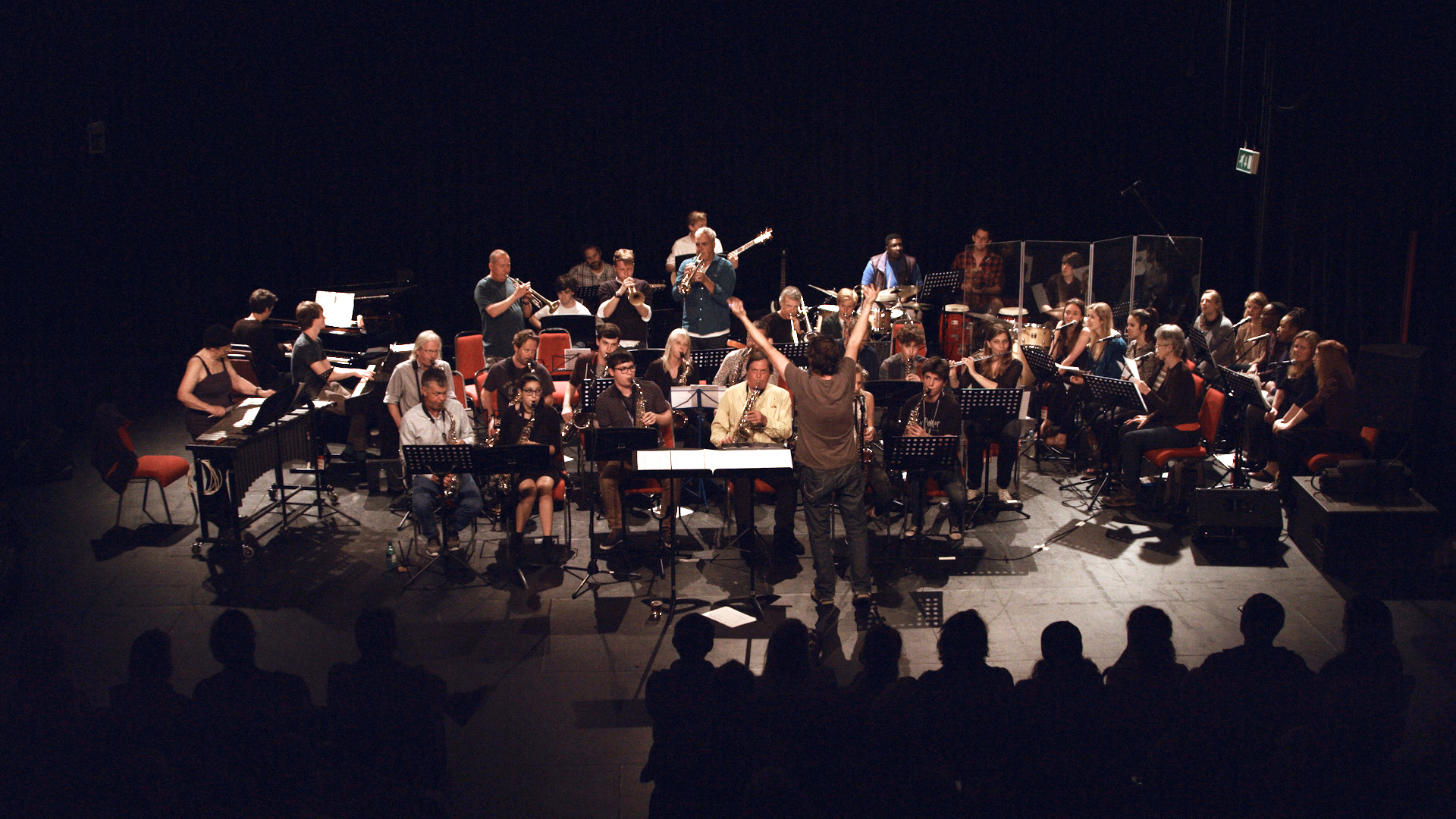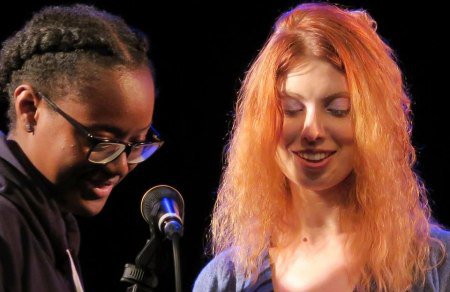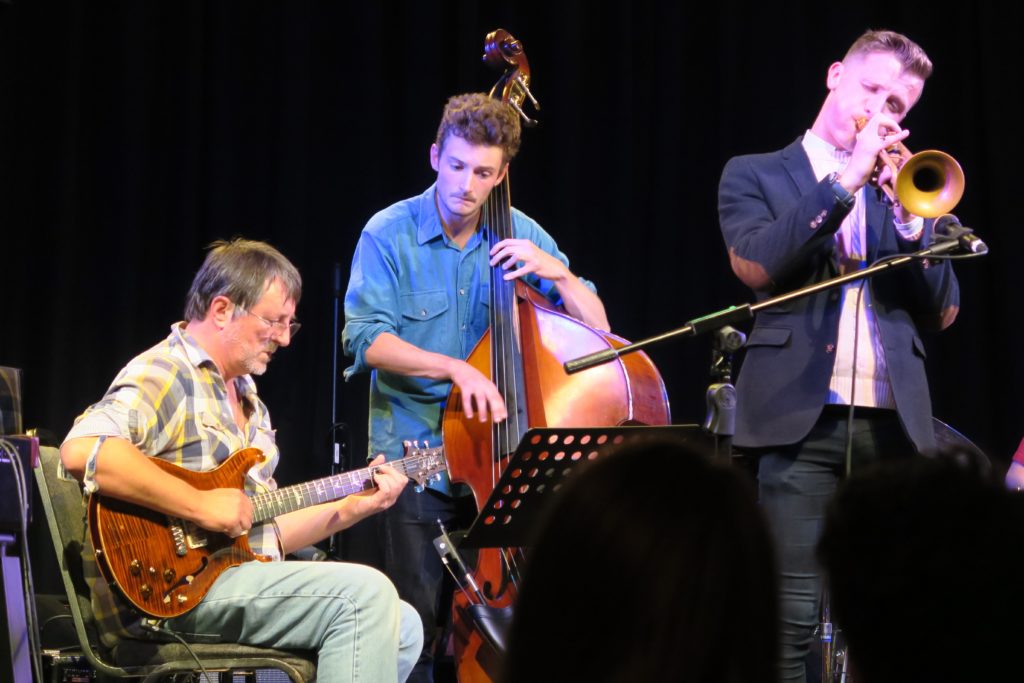
Continuing with our series on summer schools in the Jazz South region, Ashley Sealy, Jazz South Intern, spoke with Keith Michael, founder of En-Rapport, to find out more about the organisation and summer school based in Cornwall.
AS: What is the history of En-Rapport?
KM: I lived in Japan for around 20 years and during that time developed a project under the working title ‘UK Jazz in Japan’. It was planned to be presented as part of the 100 years trade agreement celebration between the UK and Japan in 2008. It was wonderful to be offered support from large UK companies and the British Embassy, but unfortunately due to unforeseen circumstances I was unable to develop the project when I returned to live in the UK.
The combination of 10-years back in this country running various projects, including a jazz workshop allowing British musicians to go to Japan, and completing an MA in curatorial practice at Dartington, allowed me to keep developing my ideas. I aspired to work more collaboratively, and armed with contacts I started to explore creating different combinations and approaches, which has now resulted in eight projects in the pipeline, four of which will be ready to launch soon.
AS: So how does the summer school fit into this?
KM: The Jazz Summer School is under the umbrella of En-Rapport and was initially developed with Falmouth University from 2012-17. As this relationship came to a conclusion in 2018, I was incredibly concerned that it would be a step backwards running a smaller summer school with 30 people, just using the university facilities. However, we then created a partnership with Yahama, in which they provided one of their artists to play a concert and give a master class. While this was short-term, the summer school nevertheless gained a strong reputation, with previous course members complimentary about their experience. We are now independently running the course, newly titled Rapport Falmouth Jazz Workshop 2019.
We kick off the workshop this week with a fantastic roster of tutors and in the amazing ‘AMATA’, Academy of Music and Theatre Arts in Falmouth University. Typically 1000 students are working on three different forms of art, but we are fortunate enough to get the whole building to ourselves. It’s well equipped and set in the beautifully green campus in Cornwall.
Workshop participants 2018
AS: I had a question about the impressive range of tutors – what was the criteria for choosing them for the project?
KM: I have worked with many of them for over 10 years, starting with four of the team in a classical course that branched out into a jazz workshop in 2008. Together we have been able to make the summer school and current workshop tutor-led. Although it is a massive amount of work for me, it is in aid of something I love. It ran so well last year, and I couldn’t be happier to have it running again this year. We had the amazing voice coach Fini Bearman join us about 3 years ago and we have a new tutor this year Iain Ballamy, (the Iain Ballamy Quartet being selected for Jazz South’s inaugural Platform South scheme).
AS: What makes a 6 days the right amount of time for you as apposed to a longer or shorter course?
KM: We started with five days but have expanded to six. As intense as the week can be, we’ve found that adding an extra day has allowed for some breathing room and lifted the experience of the members to another level.
AS: Is there an age range or skill level required to attend the workshop?
KM: A fundamental instrumental skill level is required, although students may be a beginner in jazz. We run groups from jazz beginner to jazz advanced. This year we’re fortunate to have a group of final year students from Birmingham Conservatoire providing teaching experience in a tutor support role, which is great experience all-round for the workshop tutors, conservatoire assistants and course students. We have been exploring similar opportunities and relationships with other conservatoires and music courses for the future.
Workshop participants 2018
AS: What does the week roughly look like?
KM: The start of the day is quite structured. Everyone is split into groups from beginner to advanced and each group has an allocated ‘home tutor’. Three sessions take place, two in the morning and one in the afternoon, with a variety of tutors that range in expertise, material and approach.
For beginners, it’s focused mainly on expanding their repertoire but also on material that improves their understanding of the relationship between melody, harmony and rhythm. For more experienced players there is a focus on improvisation. In the afternoon we tend to have whole course sessions with a specific focus, such as rhythm. We’ve found this helpful to create a supportive atmosphere, as those in the early stages of their jazz journey get to learn from those with more experience and vice versa. We also do various things in ensembles. For certain workshops, we split up the rhythm sections and lead instruments or, we’ll have instrumental masterclasses having all drummers in one room and guitars in another, depending on the day. Later in the afternoon all students practise by themselves.
Every evening there is a live session each evening 7pm to around midnight. Going off-campus and doing it in a real pub is rewarding for everyone as it takes away from the atmosphere of being in a bubble. Although the pub is not a jazz venue by any means, by the end of the week it draws quite a crowd and forms a community of people that aren’t necessarily fond of jazz but become open to it as they interact with us.
The high point of the week is the final night concert, which is open to invited family and friends. We are often able to fill the auditorium with 250 people and do an amazing presentation, including tutorial groups showing their best pieces from the week and individuals showing what they have been working on.
AS: Do you have any stand-out moments?
KM: Bringing American pianist, Kenny Vernon, for a whole week as our guest artist was incredible! Overall, it is very satisfying seeing so many students make substantial leaps in a small amount of time. The combination of ages working together from teenagers to octogenarians all learning with and from each other creates a chemistry that is lovely to see. There seems to be an embryonic effect where people take steps, particularly with beginners, that you wouldn’t think possible so quickly. That’s what the workshop is, it’s a concentration of input and activity with the hope of output. I must say I think we’ve found a combination of things that make it work.
See full details of the course and location which runs from 12 – 17 August at Falmouth University
www.en-rapport.org/jazzworkshop2019


